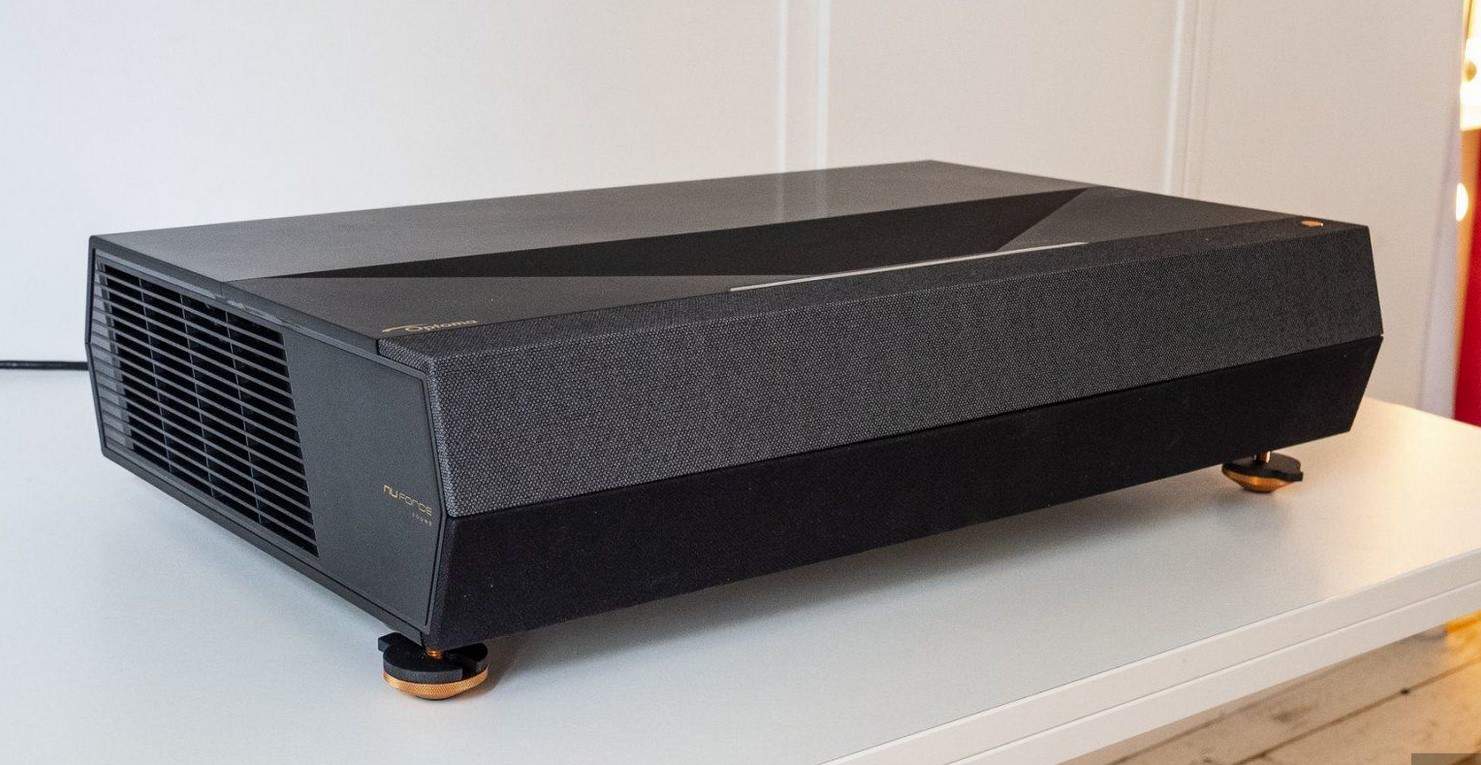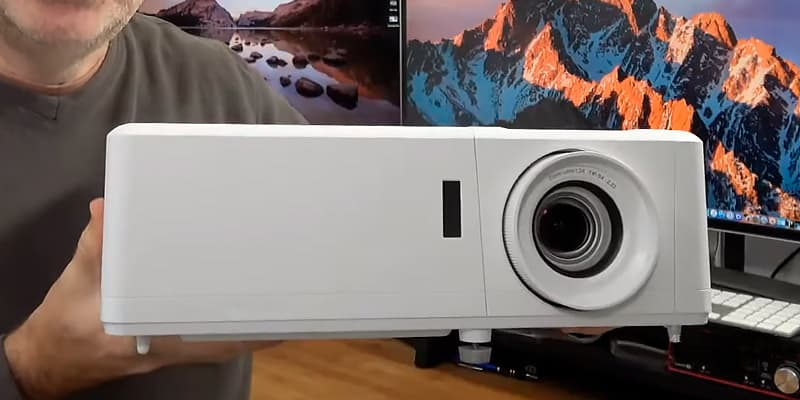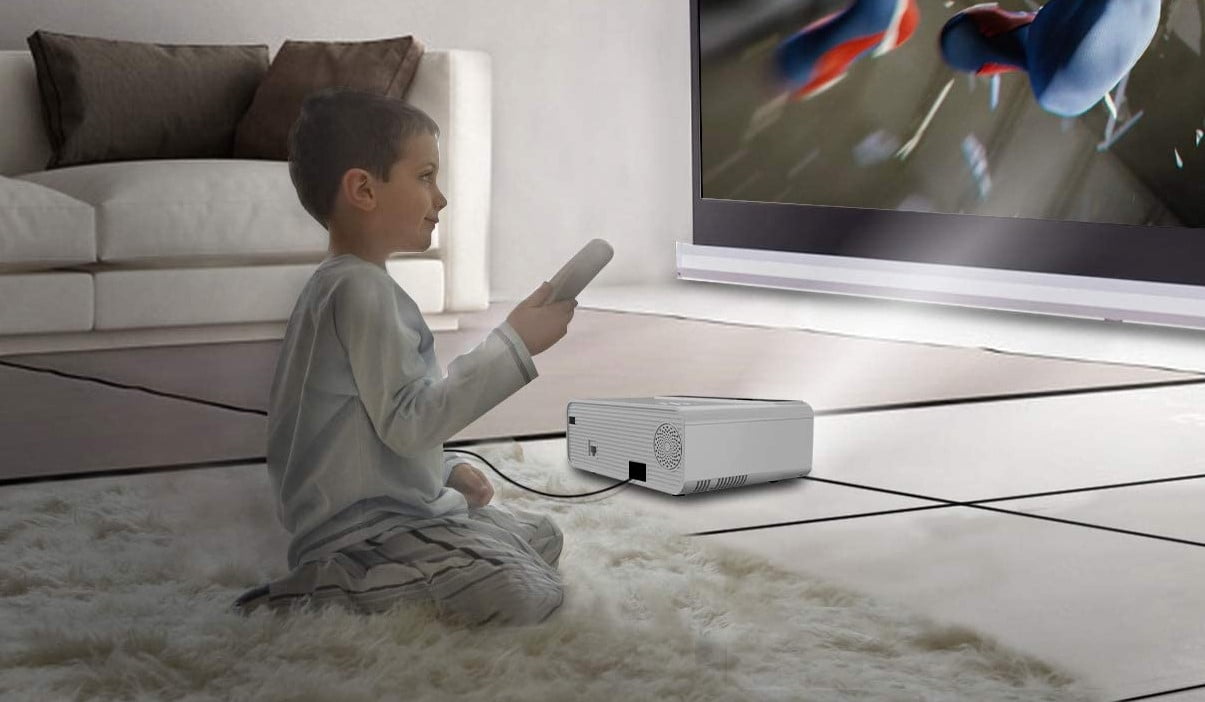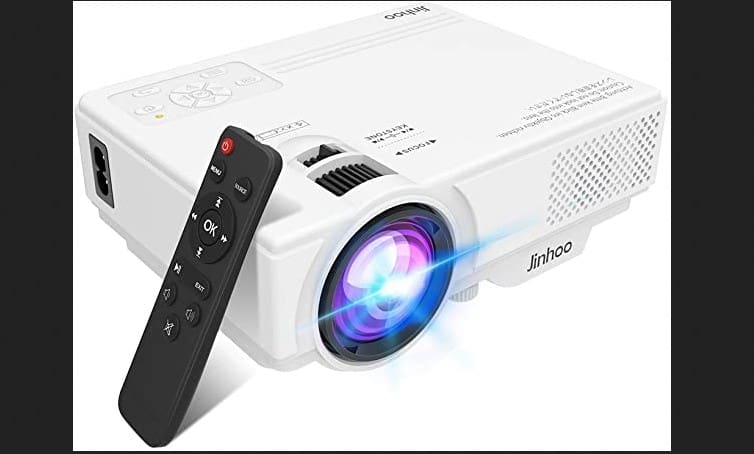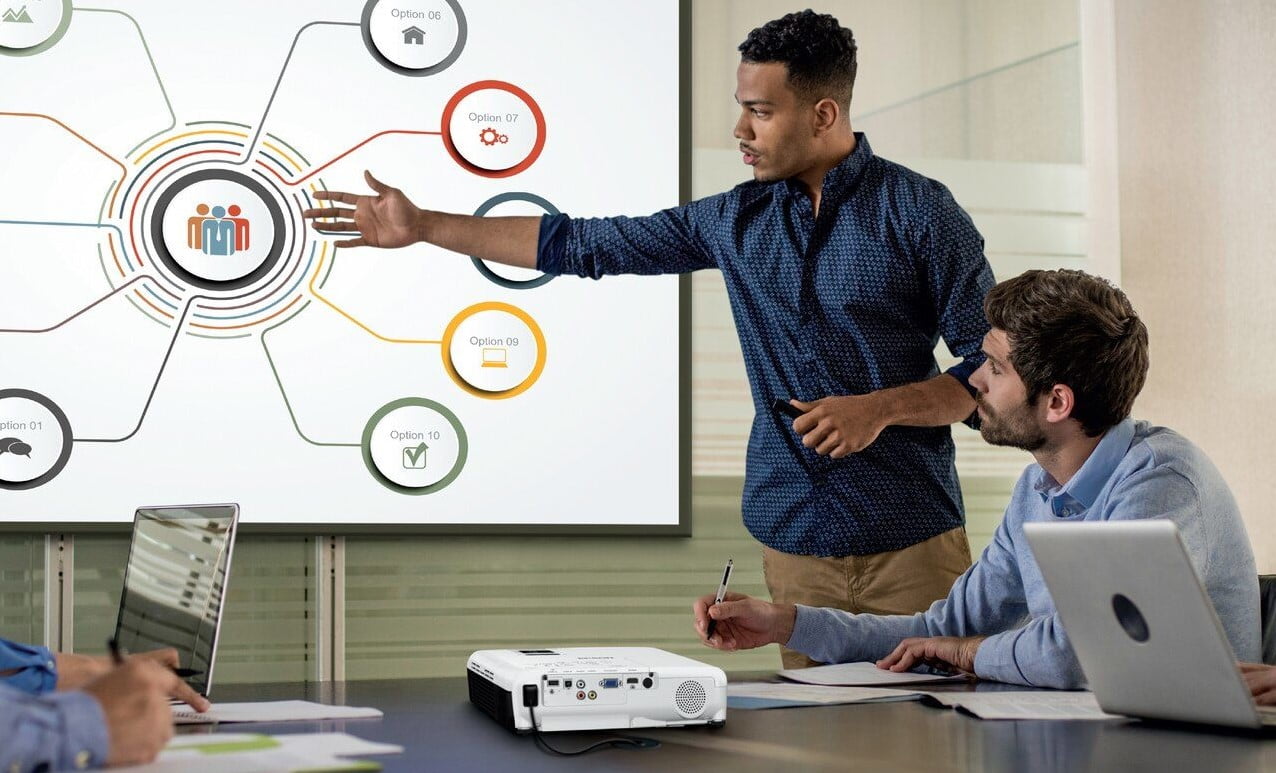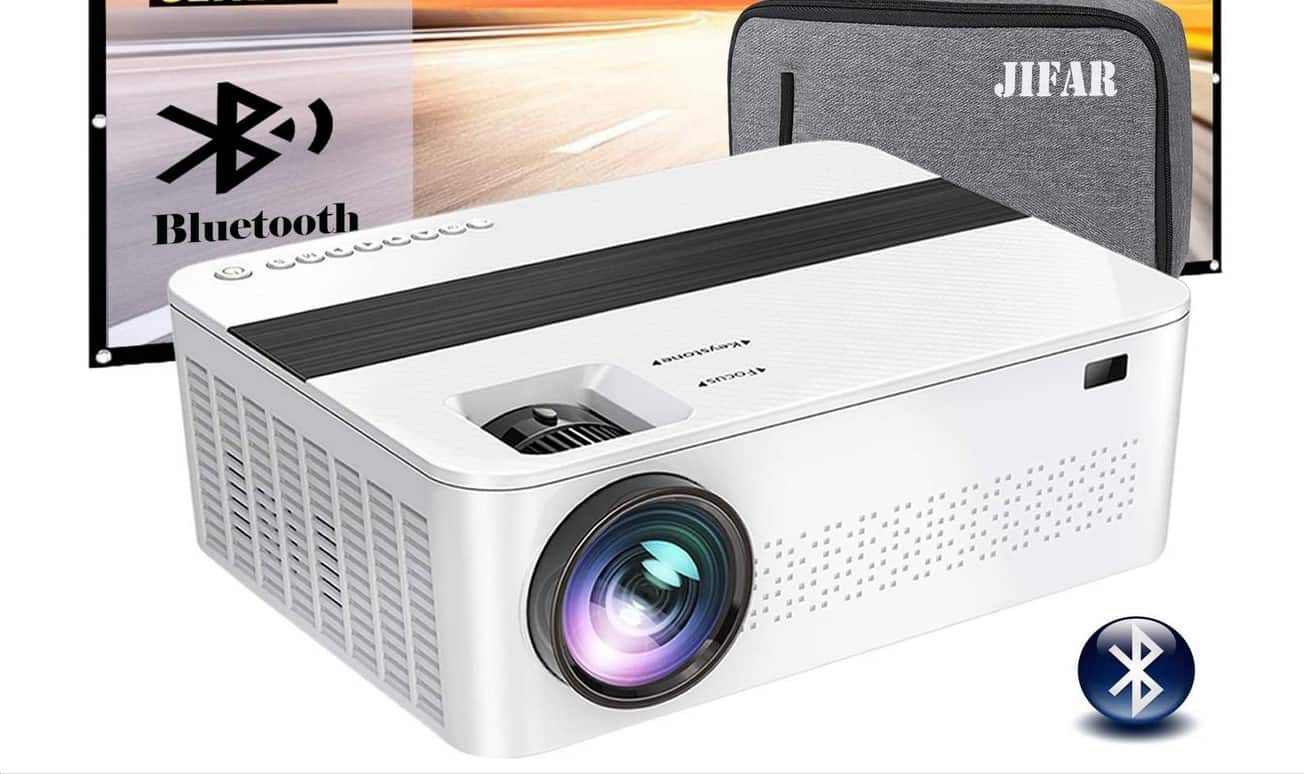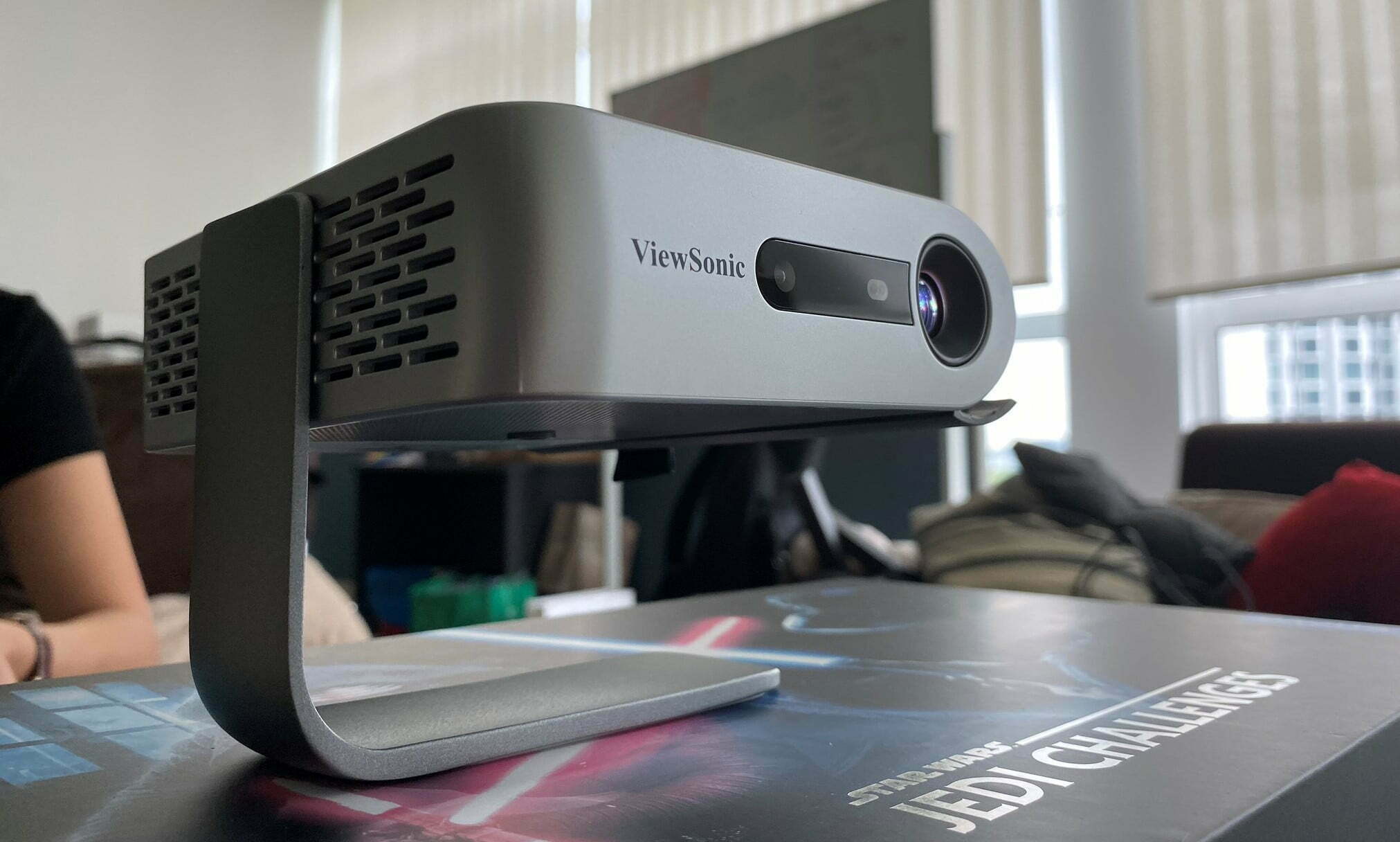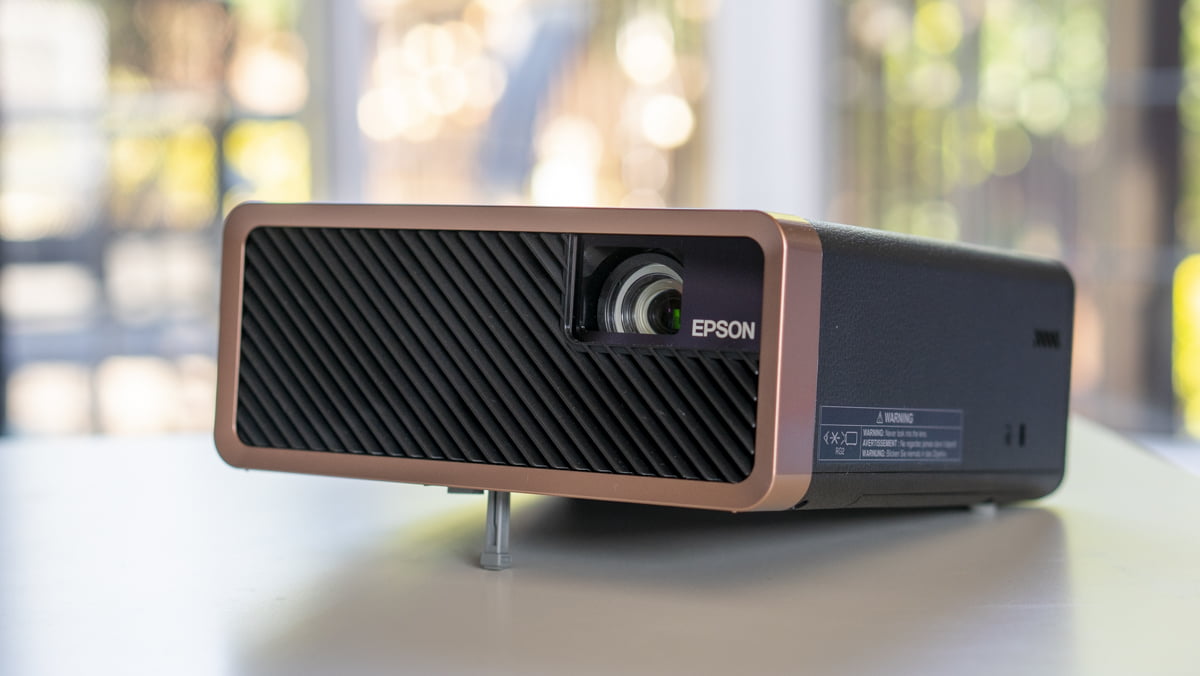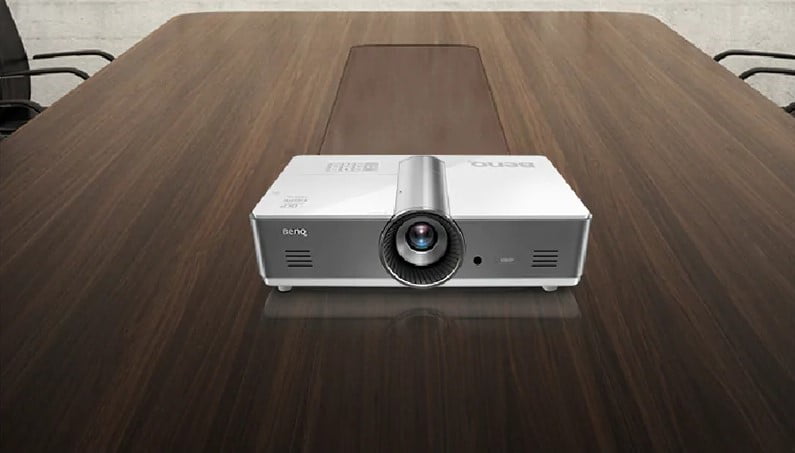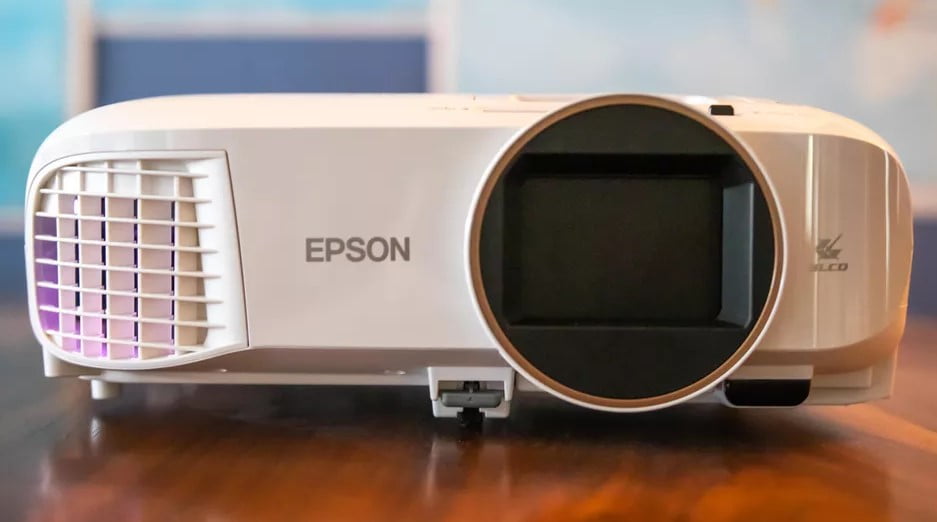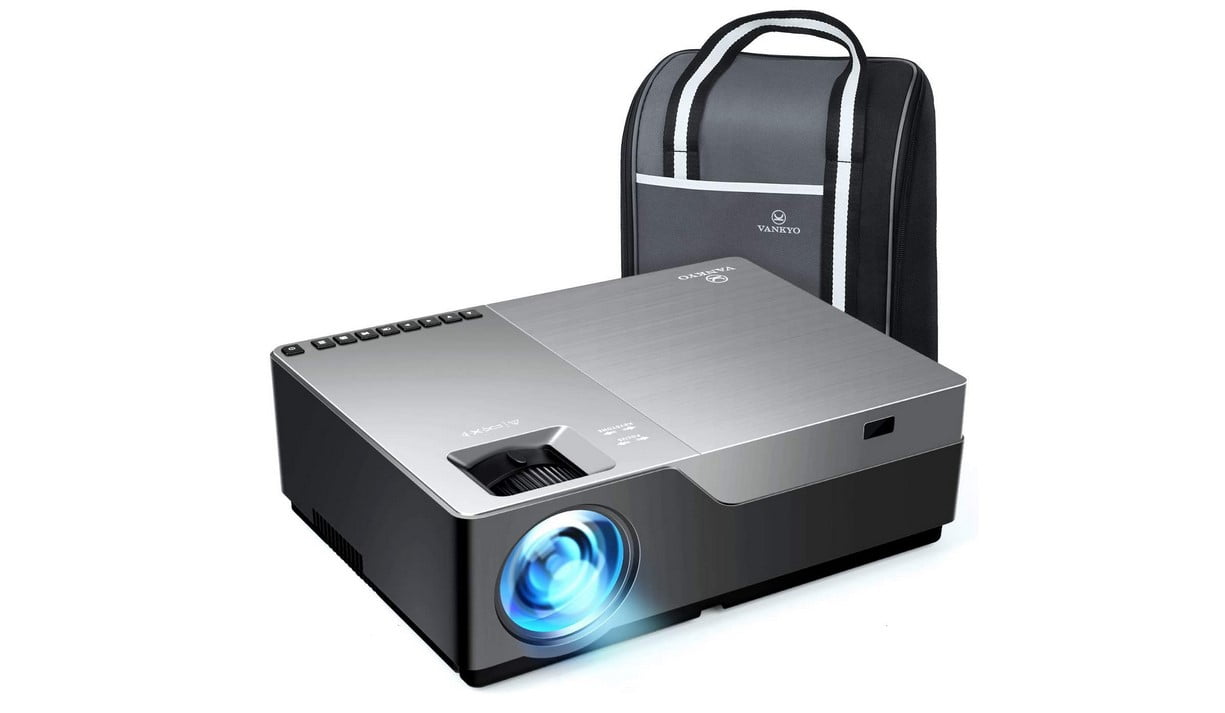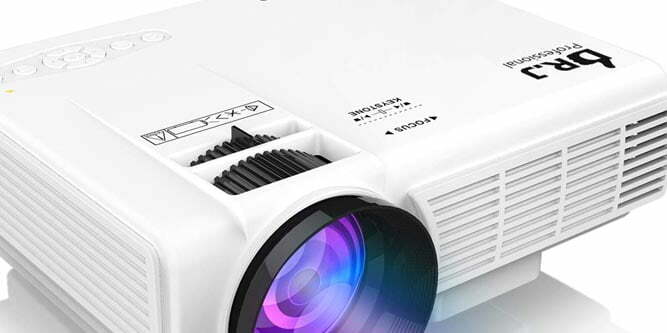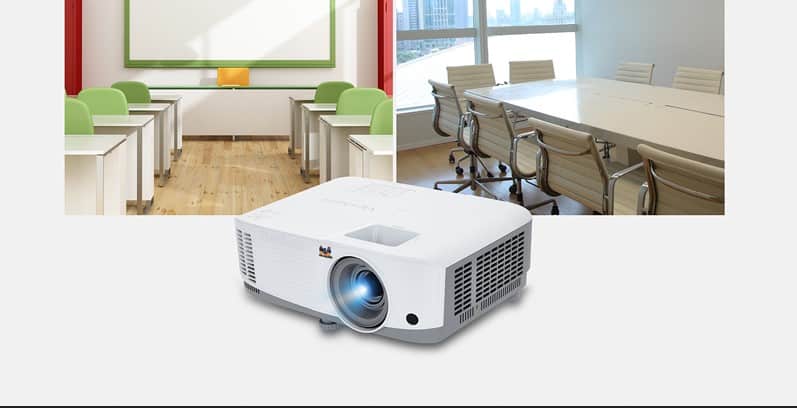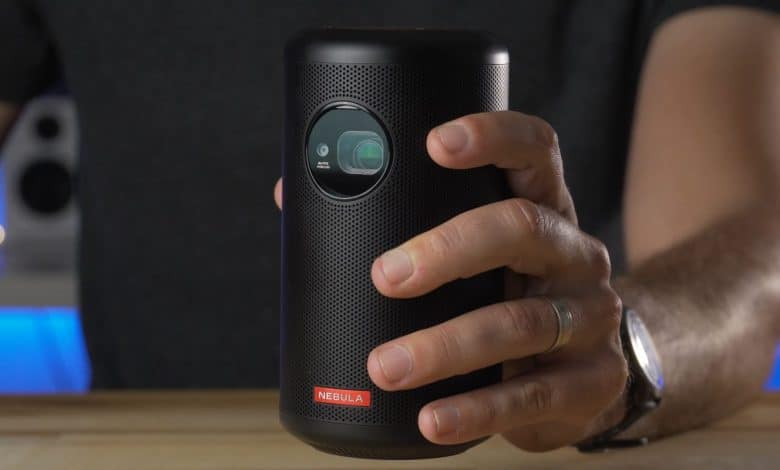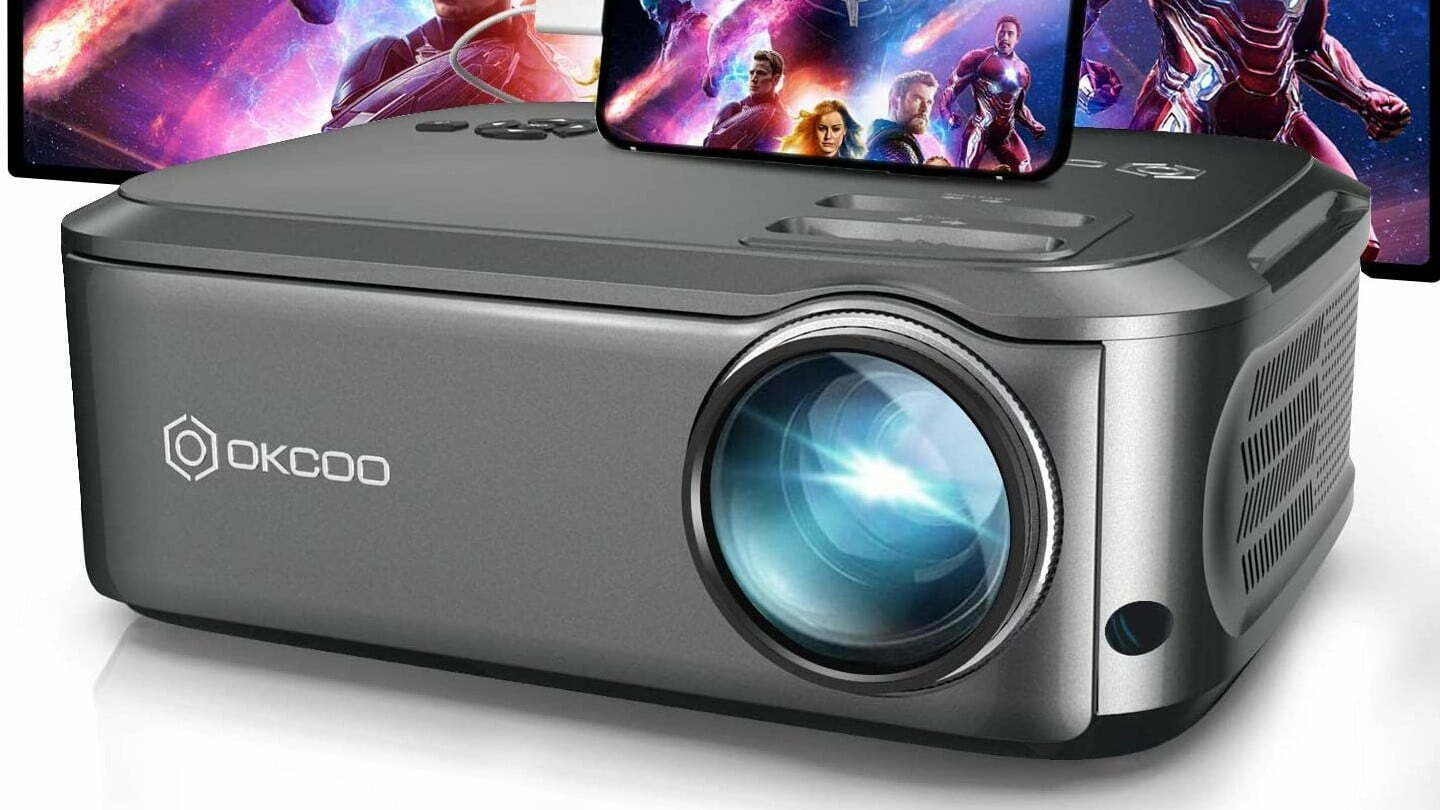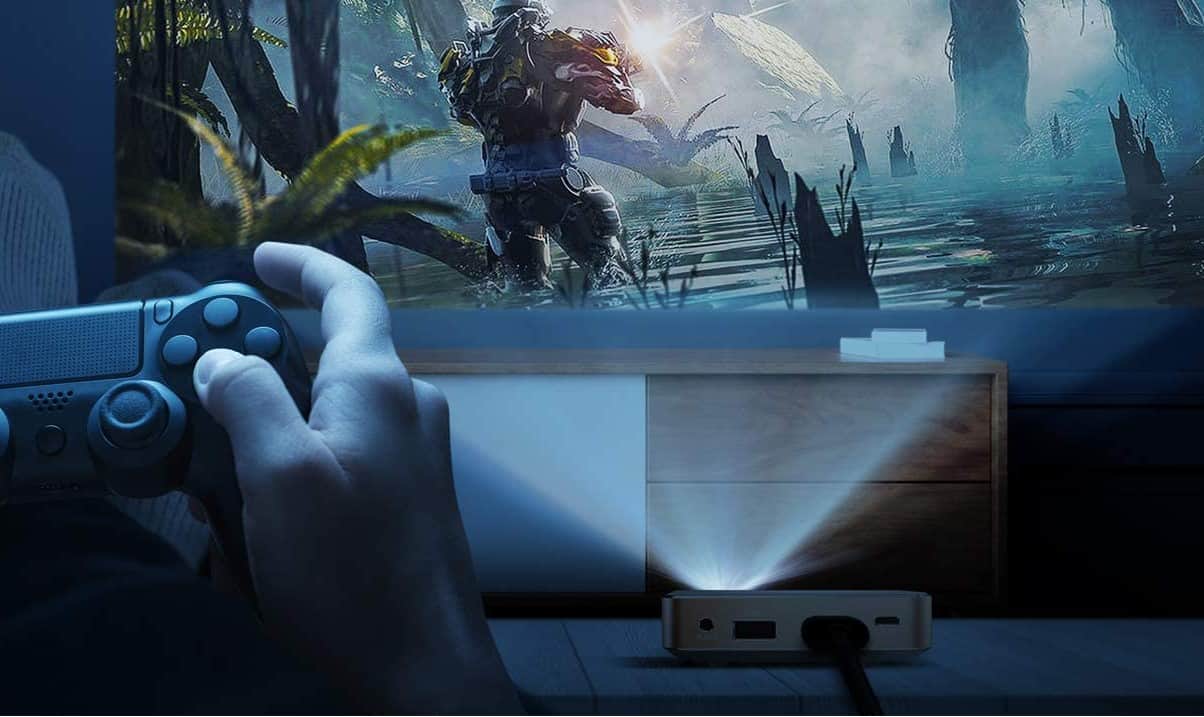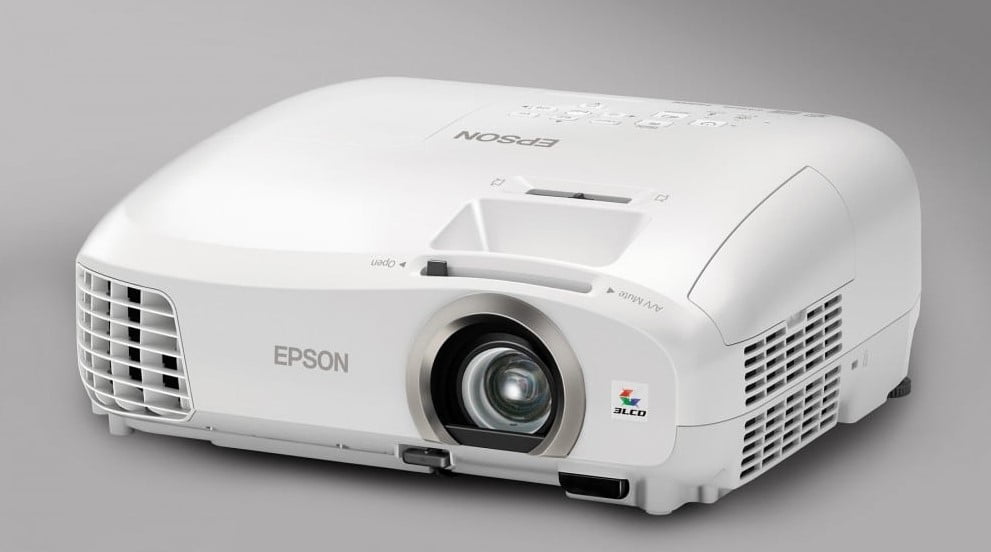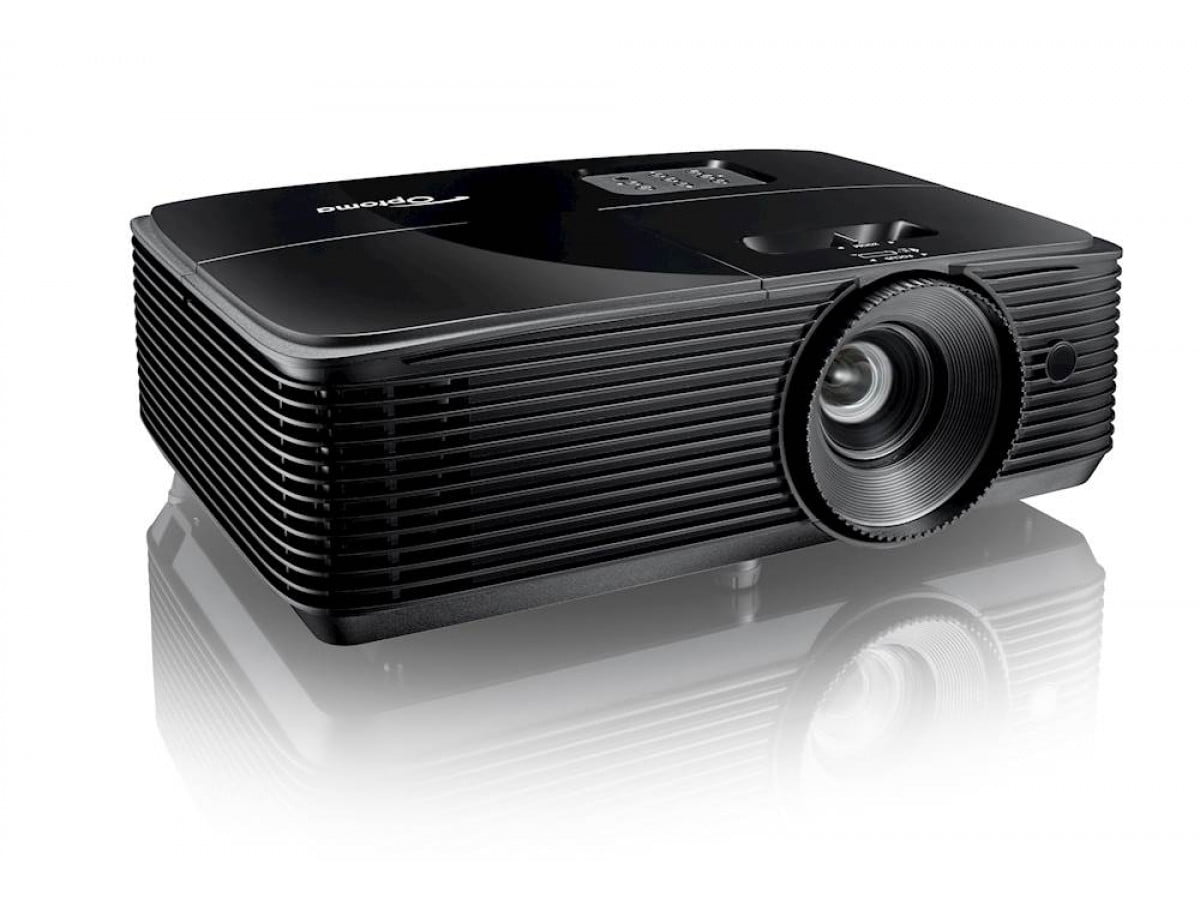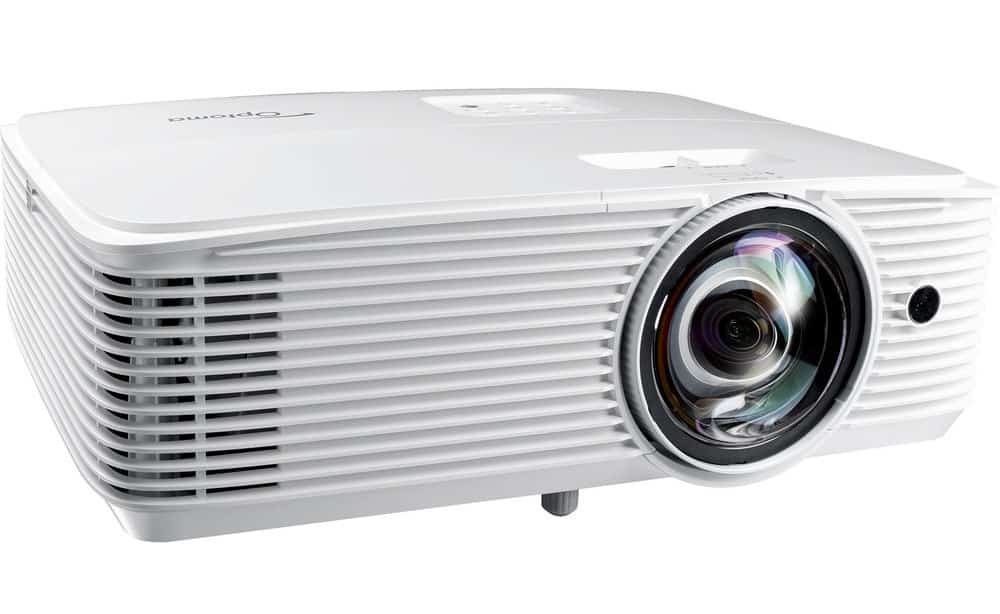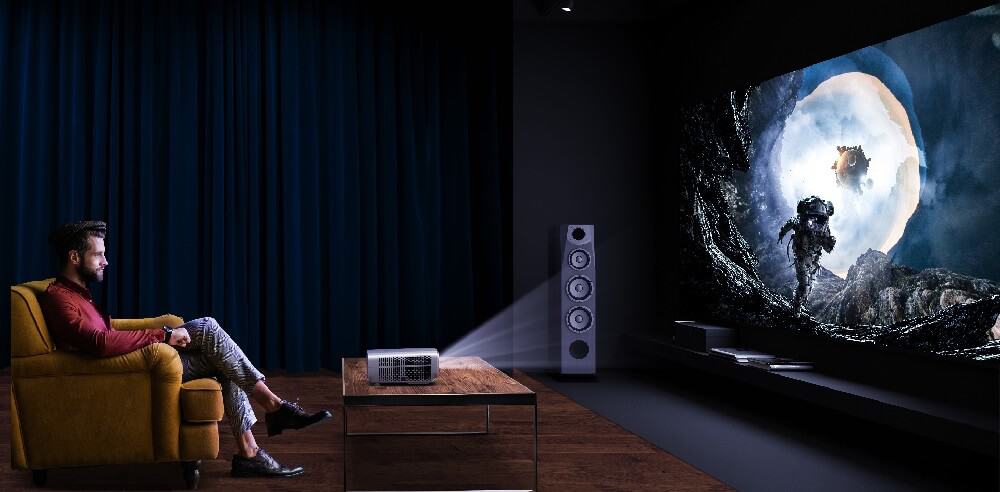As video projectors become lower in price, schools have had to choose between a video projector vs. an overhead projector. Although, you can choose between a video gaming projector vs a home theater one, based on your individual needs. Nearly every aspect of these types of projectors is different, but all projectors use a light source to project enlarged images onto a screen. The light source is different between LED projectors, laser projectors, and lamp projectors. When it comes to finding the best projectors for schools and homes, we’ll have to consider the content available for both of these projection methods. To better understand digital devices, you may want to check out projector: native resolution vs. supported resolution.
KEY TAKEAWAYS:
- Overhead projectors are used mainly in businesses and schools that have the transparencies and projector already.
- Many video projectors have become common in businesses, schools, and homes.
- Video projectors can be used with a variety of content, not just transparencies as overhead models can.
Differences Between Video and Overhead Projectors
The differences between video and overhead projectors vary from the type of content that can be shown to the method of projection. Additionally, the two may be used in different settings and with differing ambient light and brightness. When it comes to most of these differences, video projectors seem like the better choice, but overhead models have been used for years in education, making them worthwhile to schools and teachers who have their teaching already printed and organized on the overhead. Continue reading to find out more about these two projection technologies.
Insider Tip
Video projectors show images and videos that are hooked up to the device and changes can be made on this device while in use.
Available Content for Overhead and Video Projectors
The largest difference between video and overhead models stems from the type of content that can be displayed from either. Education facilities and businesses use overheads to show information from a transparent slide with printed or drawn content, including text, photos, or slides. This particular type of device only works with these types of materials. Meanwhile, a video projector can show stationary pictures or videos to the watcher, as the name suggests. Thus, a video projector expands the content that can be shown, especially with the use of internet capabilities or document cameras, which make it ideal to get the top projector for your living room or classroom.
Projection Methods for Overhead Projectors and Video Projectors
Overhead devices include a light source under the plate where the transparent paper sits. The light then shines up through the plate before hitting a mirror and bouncing off showing the projected picture on the desired wall or board. For video projection, the light source bounces off of a digital micromirror device or passes through a liquid crystal display (LCD) system. After being altered by color filters (for a digital light processing device) or the displays (for LCD projectors,) the image projects through the lens onto the projection screen. Several resolutions are possible using a video model, including WXGA resolution vs. full HD for a projector.
Insider Tip
Overhead projectors have become less common purchases, but schools that already have the desired slides still use them due to the ease of use and of cleaning.
Usage for Overhead and Digital Projectors
Overhead models may be used at businesses or in schools to demonstrate processes or provide information. The transparent pages can be written on using a dry erase marker that can be washed or erased at the end of the meeting or lesson. Digital versions can be used in the same settings or at home for entertainment. Although they do not offer the interactivity of markup using a whiteboard marker, they can be altered and adjusted on the computer or other source device. Additionally, digital projectors support larger images and sharp images.
Brightness and Contrast Ratios for Overhead and Digital Projectors
The brightness of both of these types of devices rests at an average of about 2,000 lumens of brightness. There are brighter images and outputs available for each, but digital projector technology is less affected by ambient light and does not waste light as an overhead model does. Additionally, the picture quality and contrast ratios typically remain better on a video projector due to the fact that they have more pixels overall, greater screen size, and brighter white levels when showing photos. Overhead models show photos with only the image quality available when printing.
Warning
Many games are not available in 4K, so you may want to stick with a cheaper 1080p option, which still features full HD.
F.A.Q.S
What is Adaptive Sync?
Adaptive sync changes the refresh rate of a display to match the output frames from the device as they are created.
What does “throw” mean?
Arm projector’s throw describes the distance between a projector’s lens and the screen or wall or another surface where the image appears.
Do schools still use overhead projectors?
Some schools and businesses that already own overhead projectors and their desired content still use overhead projectors, but document cameras and regular projectors are becoming more common.
STAT: [Overhead projectors] were widely used in education and business before the advent of video projectors. (source)

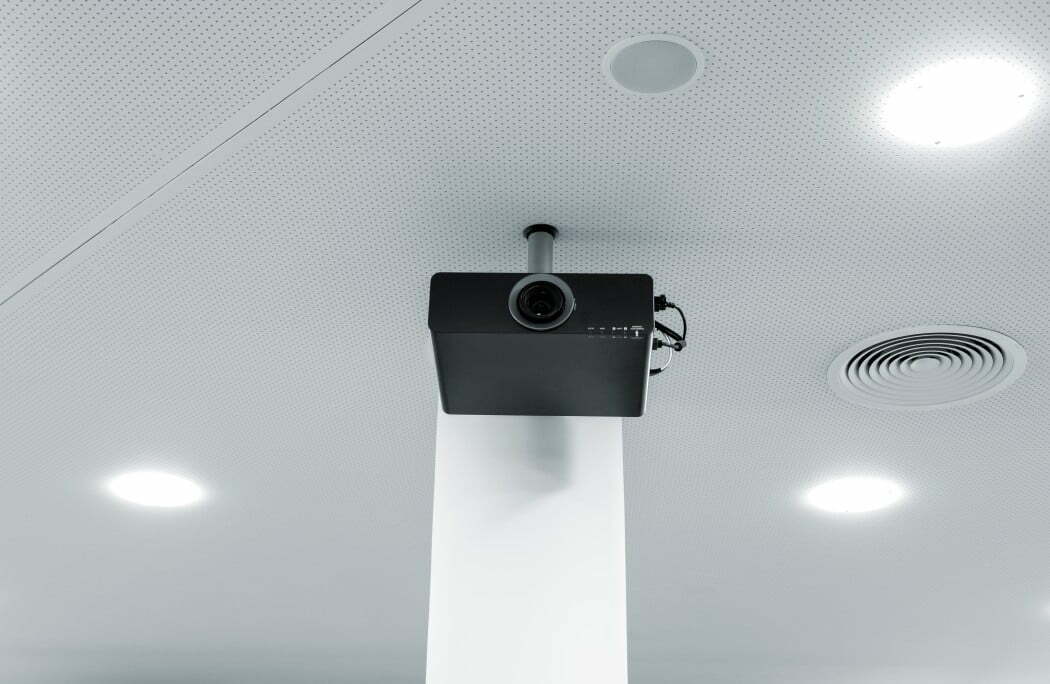














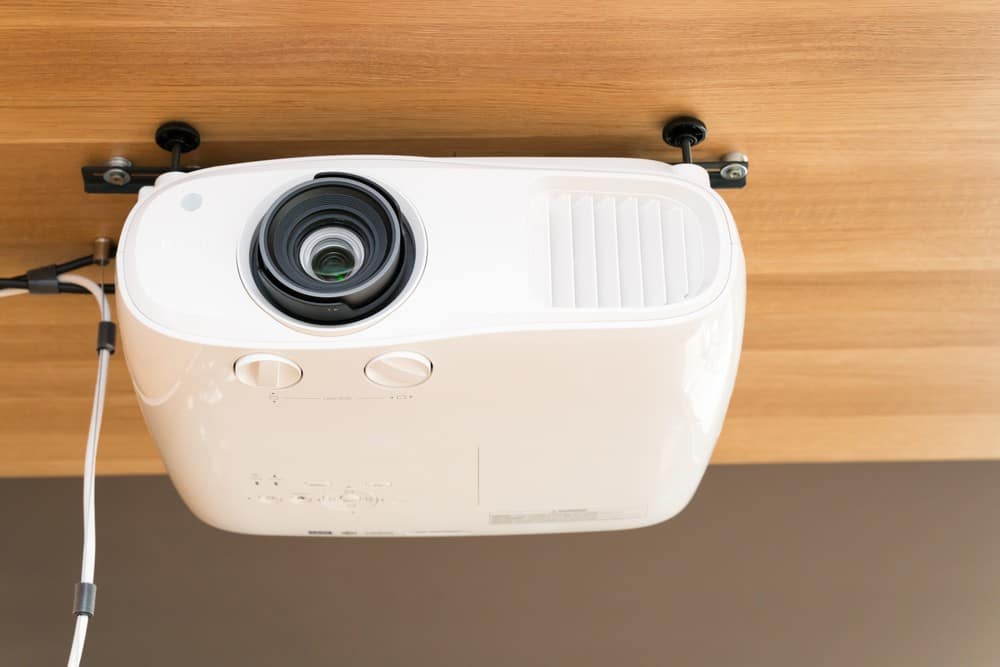
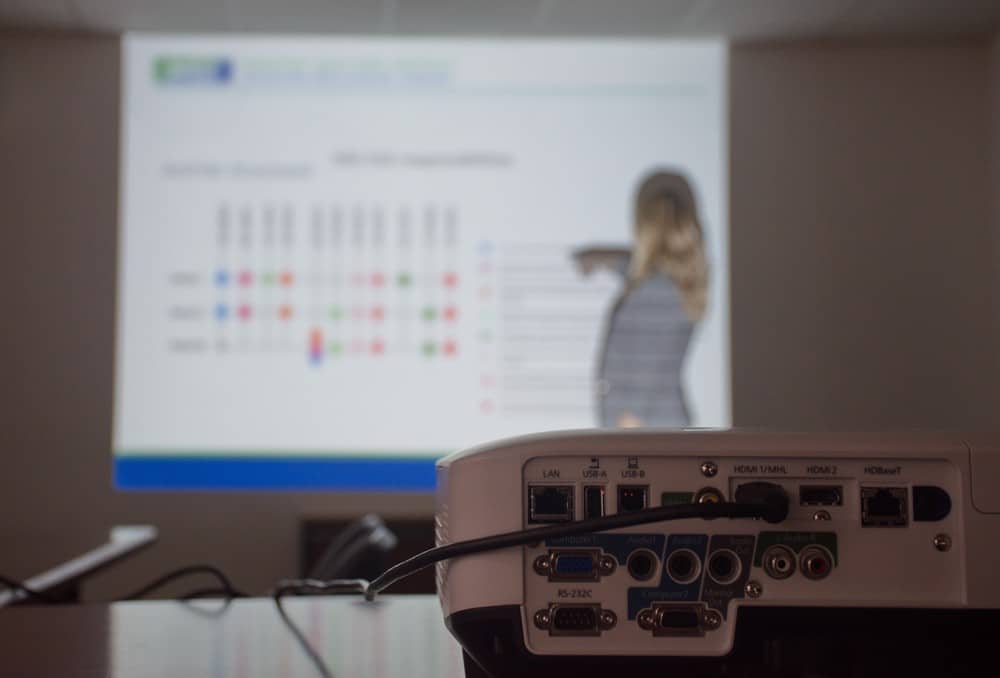
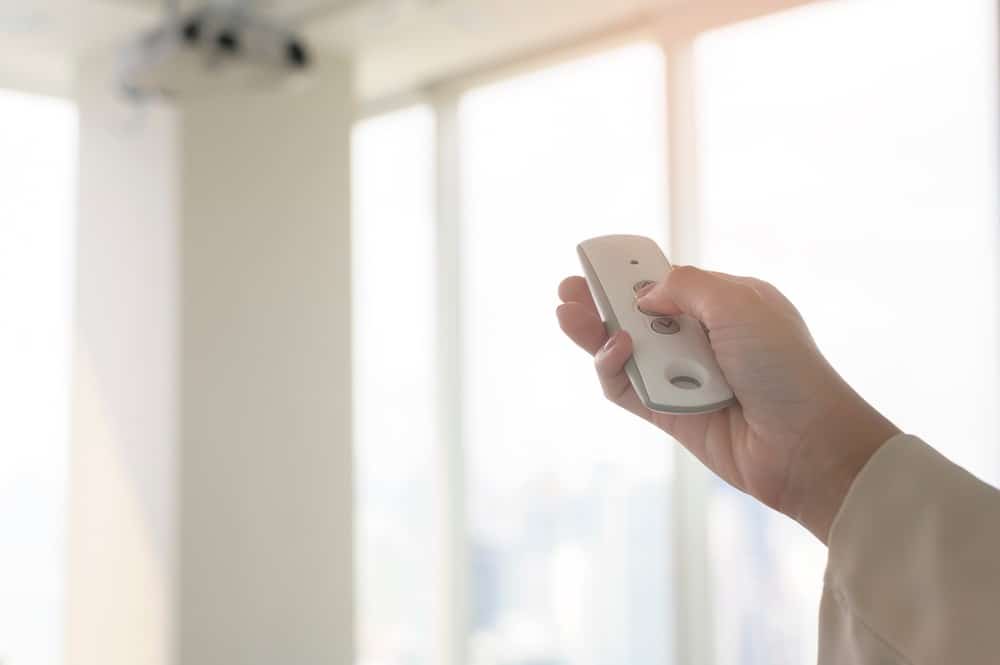
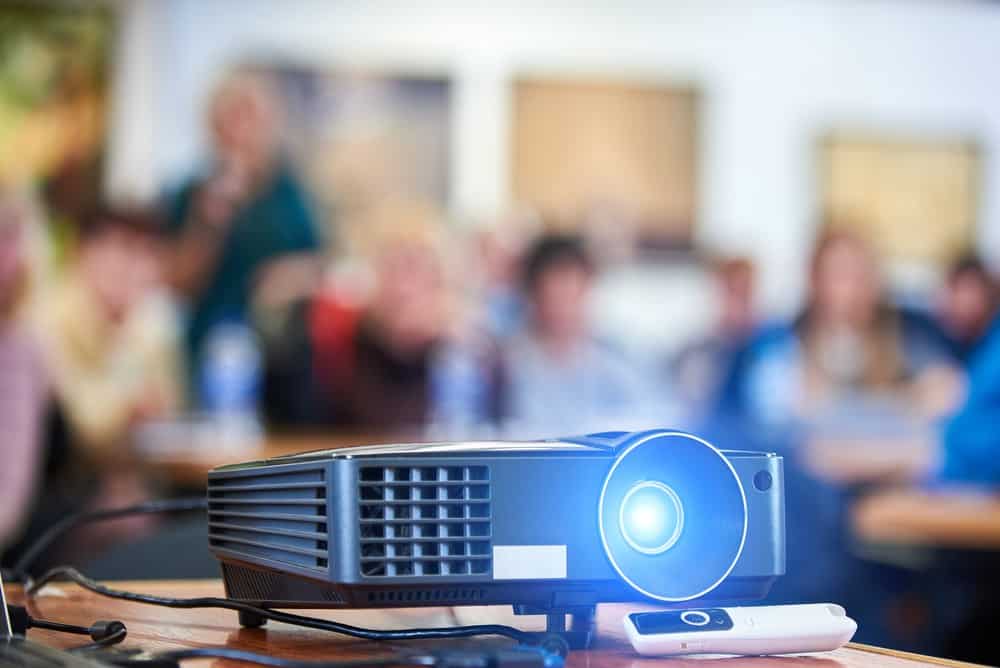

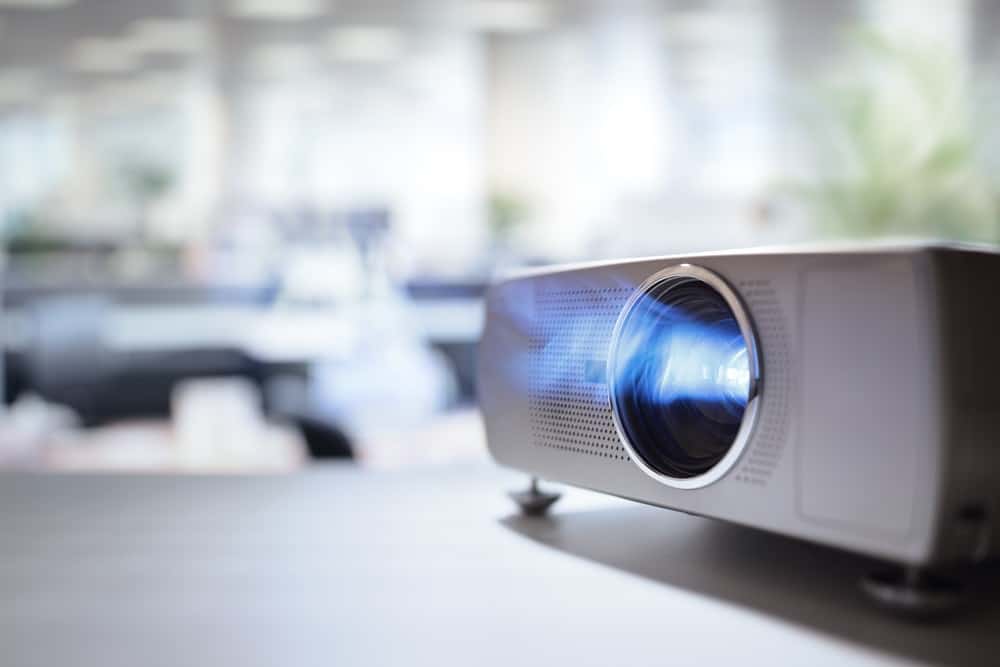
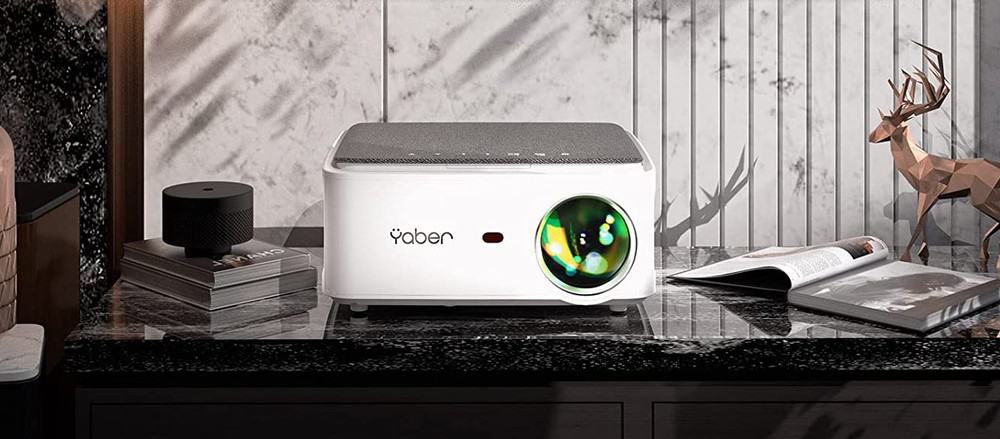
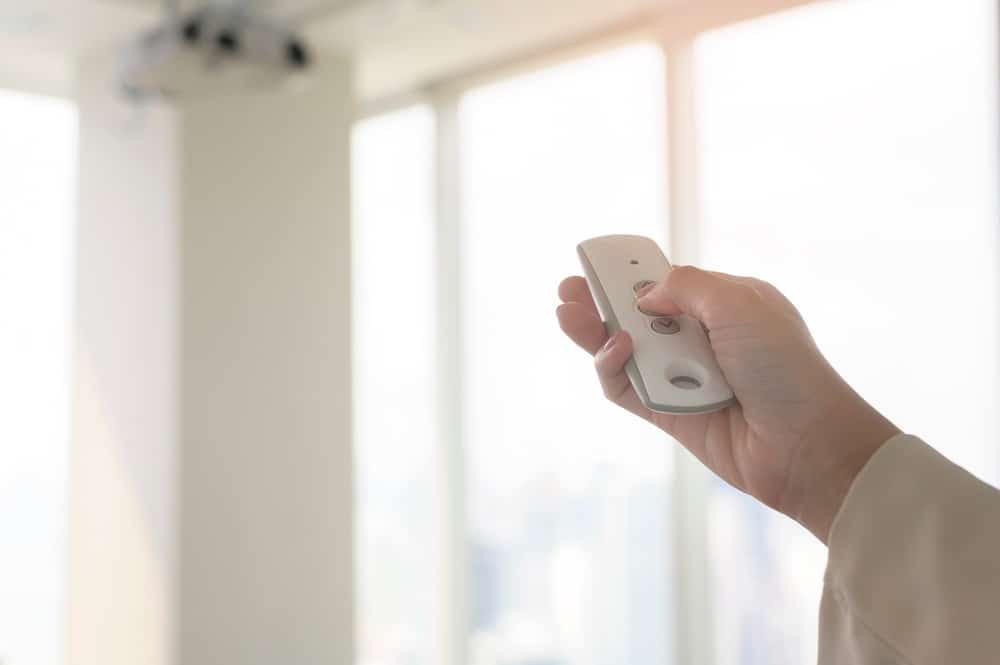
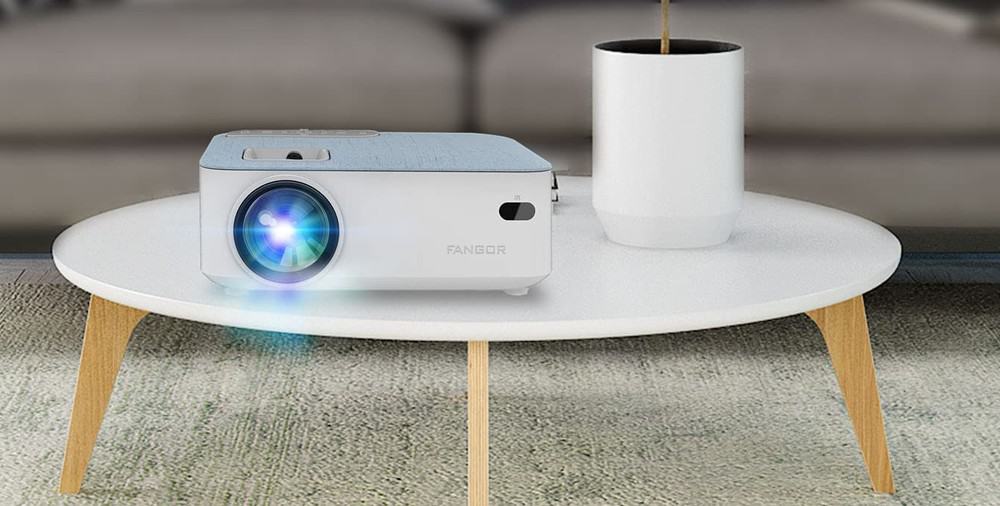
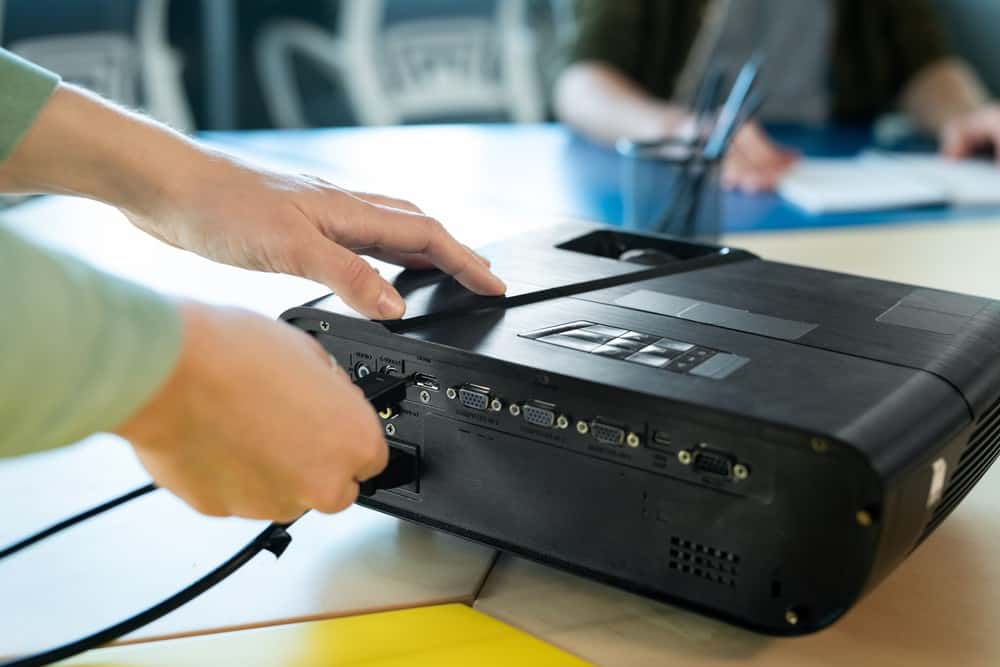
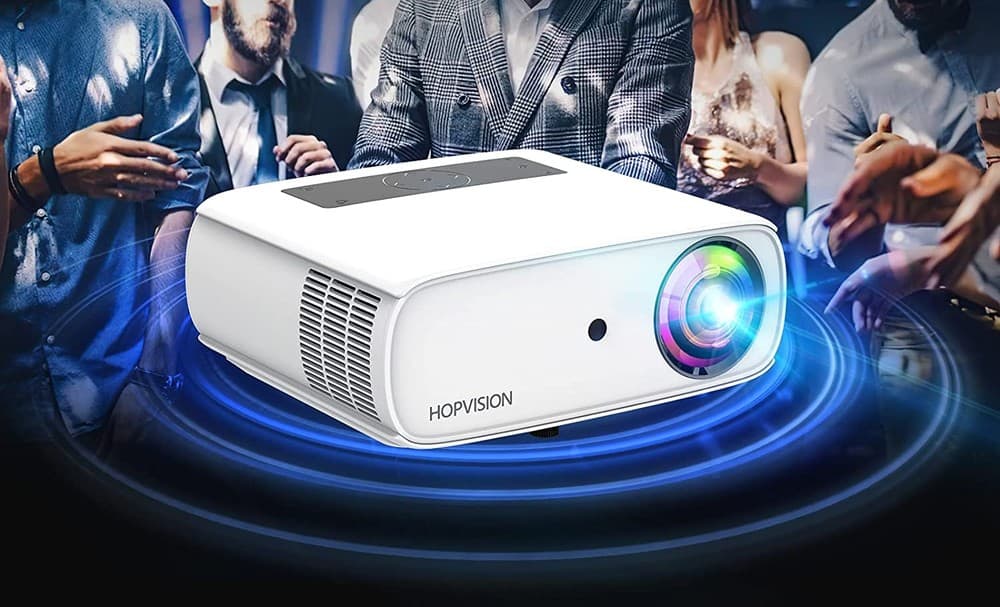

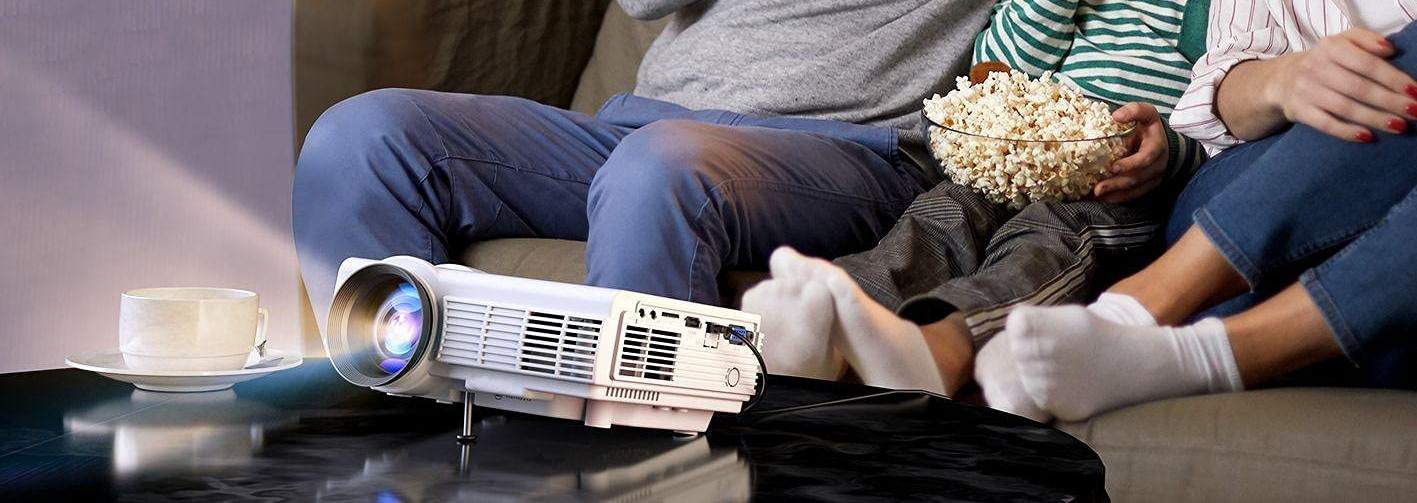
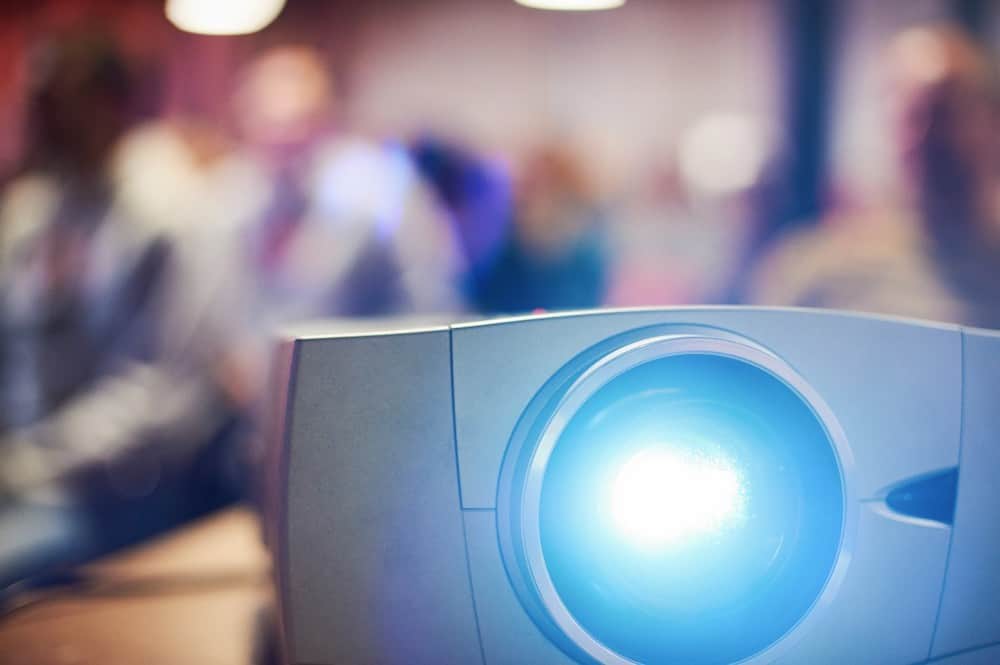
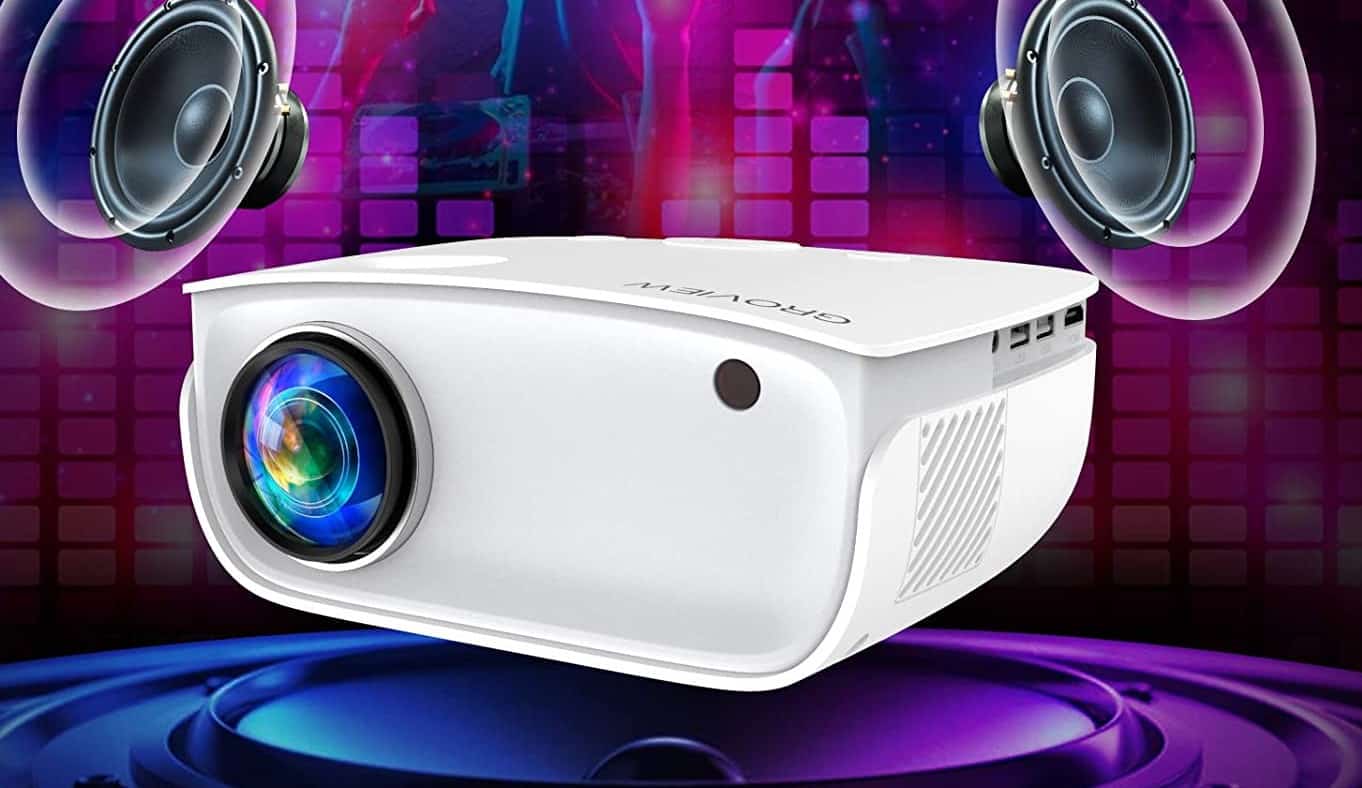
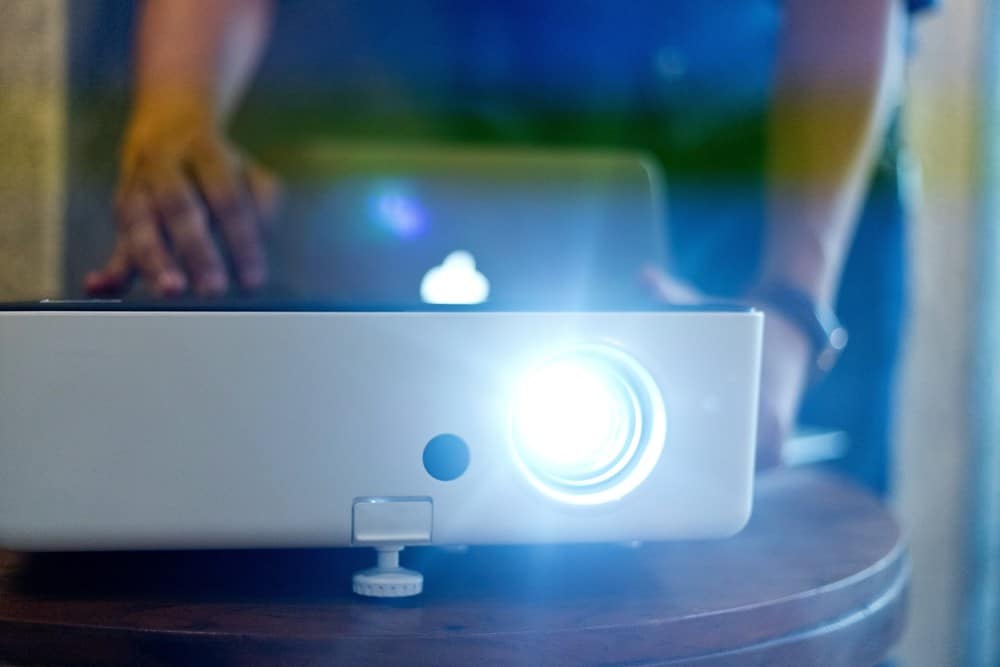

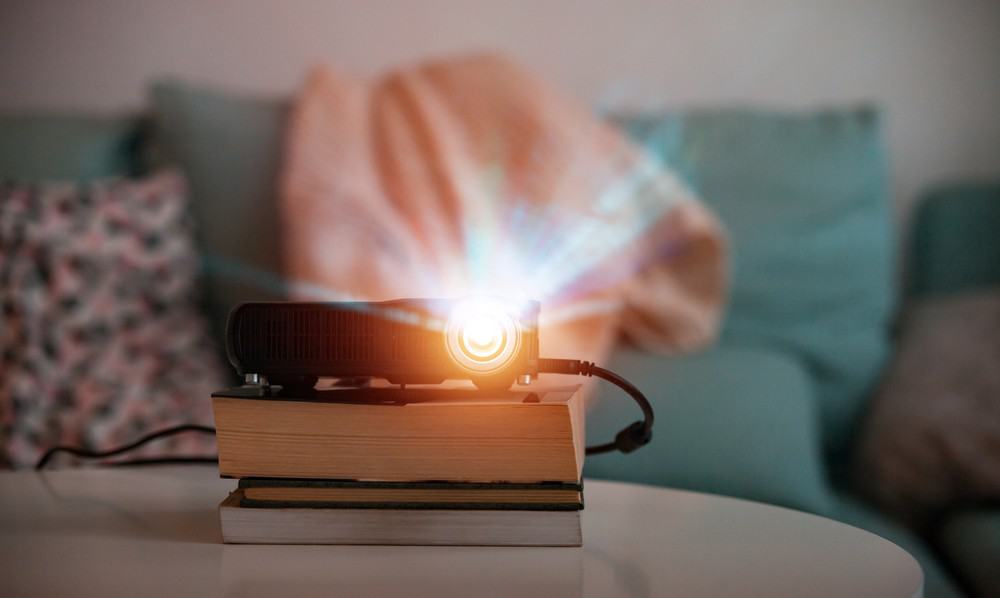
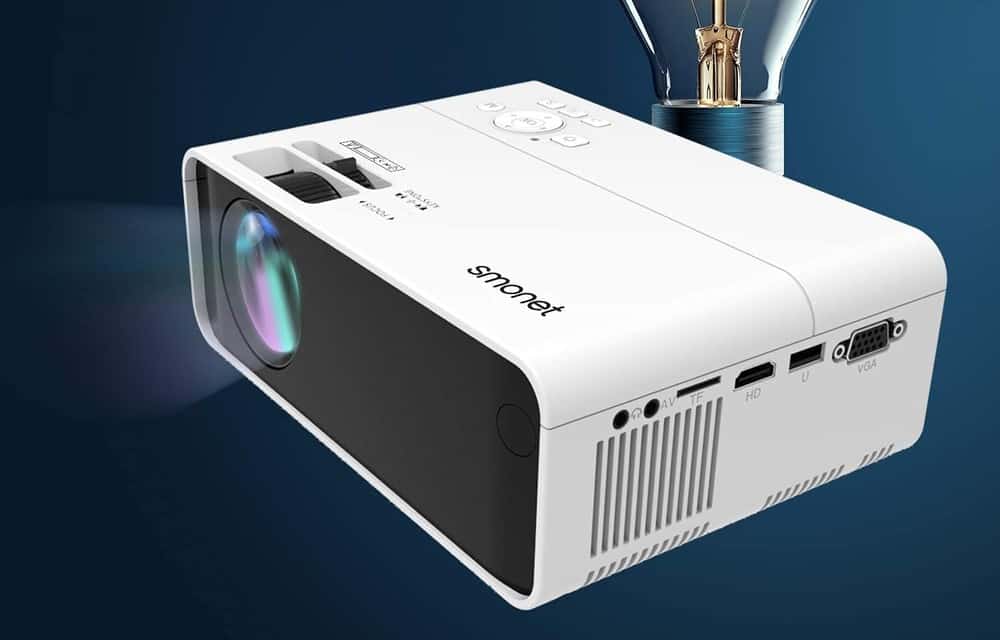
![Best Projectors for Daylight Viewing in [year] 27 Best Projectors for Daylight Viewing in 2026](https://www.gadgetreview.dev/wp-content/uploads/best-projector-for-daylight-viewing-image.jpg)
![Best Samsung Projectors in [year] 28 Best Samsung Projectors in 2026](https://www.gadgetreview.dev/wp-content/uploads/best-samsung-projectors-image.jpg)
![Best NEC Projectors in [year] 29 Best NEC Projectors in 2026](https://www.gadgetreview.dev/wp-content/uploads/best-nec-projectors-image.jpg)
![Best Acer Projectors in [year] 30 Best Acer Projectors in 2026](https://www.gadgetreview.dev/wp-content/uploads/best-acer-projectors-image.jpg)
![Best Quiet Projectors in [year] 31 Best Quiet Projectors in 2026](https://www.gadgetreview.dev/wp-content/uploads/best-quiet-projector-image.jpg)
![Best Projectors for Golf Simulator in [year] 32 Best Projectors for Golf Simulator in 2026](https://www.gadgetreview.dev/wp-content/uploads/best-projector-for-golf-simulator-image.jpg)
![Best Conference Room Projectors in [year] 33 Best Conference Room Projectors in 2026](https://www.gadgetreview.dev/wp-content/uploads/best-conference-room-projector-image.jpg)
![Best InFocus Projectors in [year] 34 Best InFocus Projectors in 2026](https://www.gadgetreview.dev/wp-content/uploads/best-infocus-projectors-image.jpg)
![Best Mini Projector in [year] ([month] Reviews) 35 Best Mini Projector in 2026 (January Reviews)](https://www.gadgetreview.dev/wp-content/uploads/best-mini-projector-image.jpg)
![Best Panasonic Projectors in [year] 36 Best Panasonic Projectors in 2026](https://www.gadgetreview.dev/wp-content/uploads/best-panasonic-projectors-image.jpg)
![Best Sony Projectors in [year] 37 Best Sony Projectors in 2026](https://www.gadgetreview.dev/wp-content/uploads/best-sony-projectors-image.jpg)
![Best Projector Stands in [year] 38 Best Projector Stands in 2026](https://www.gadgetreview.dev/wp-content/uploads/best-projector-stand-image.jpg)
![Best Ultra Short Throw Projectors in [year] 39 Best Ultra Short Throw Projectors in 2026](https://www.gadgetreview.dev/wp-content/uploads/best-ultra-short-throw-projector-image.jpg)
![Best Projectors for a Living Room in [year] 40 Best Projectors for a Living Room in 2026](https://www.gadgetreview.dev/wp-content/uploads/best-projector-for-living-room-image.jpg)
![Best RCA Projectors in [year] 41 Best RCA Projectors in 2026](https://www.gadgetreview.dev/wp-content/uploads/best-rca-projectors-image.jpg)
![Best Optoma Projectors in [year] 42 Best Optoma Projectors in 2026](https://www.gadgetreview.dev/wp-content/uploads/best-optoma-projectors-image.jpg)
![Best BenQ Projectors in [year] 43 Best BenQ Projectors in 2026](https://www.gadgetreview.dev/wp-content/uploads/best-benq-projectors-image.jpg)
![Best Projectors for Church in [year] 44 Best Projectors for Church in 2026](https://www.gadgetreview.dev/wp-content/uploads/best-projector-for-church-image.jpg)
![Best Projectors for Classroom in [year] 45 Best Projectors for Classroom in 2026](https://www.gadgetreview.dev/wp-content/uploads/best-projector-for-classroom-image.jpg)
![Best Epson Projectors in [year] 46 Best Epson Projectors in 2026](https://www.gadgetreview.dev/wp-content/uploads/best-epson-projector-image.jpg)
